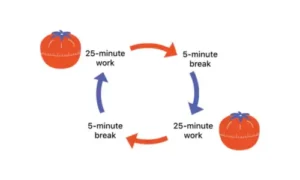Recently updated on January 12th, 2025 at 09:42 am
Effective study techniques are crucial for academic success, but not all study methods are effective for everyone. Nevertheless, some strategies have been shown to improve retention, maintain motivation, and reduce stress. Here are five strategies to help you maximise your study sessions and maximize your time.
Make a timetable for studying

You can create an efficient study program Depending on your objectives, the subjects you need to study, and the amount of time you have available. This is a standard weekly study schedule template that incorporates review time, rest periods, and organized study times. For a particular test, ongoing education, or a personal project, you can modify it to suit your needs.
Study in a group

Studying in a group can be a great way to stay motivated, expand your knowledge, and have fun while learning. To be effective, though, it needs organization and unambiguous communication. The following techniques and advice will help you get the most out of group study sessions.
Practice testing

One of the best study methods for enhancing comprehension and memory retention is practice testing. Practice exams make your brain actively retrieve material rather than passively reviewing your notes or reading them again, improving your knowledge and identifying areas that require more focus. Here’s how to successfully integrate practice exams into your study schedule.
Take breaks

When studying, taking regular breaks is crucial for preserving concentration, controlling stress, and increasing output. Since our brains aren’t made to concentrate hard for extended periods, taking well-timed breaks can improve learning and reduce fatigue. Here’s how to successfully include breaks in your study schedule.
The Pomodoro Method

The Pomodoro Technique is a time-management strategy that maximizes focus by using timed intervals. Short, concentrated study sessions (often lasting 25 minutes) are encouraged, interspersed with brief breaks. This keeps your mind sharp, helps you avoid burnout, and can help you manage even lengthy study sessions.
Conclusion
Effective study strategies, such as practice exams, can be incorporated into your daily routine to help you remember material over time and, consequently, perform far better academically. Practice testing improves memory, strengthens comprehension, and identifies areas that require attention. Additionally, it can be done actively with flashcards and practice tests, in a study group, or by taking simulated tests.






